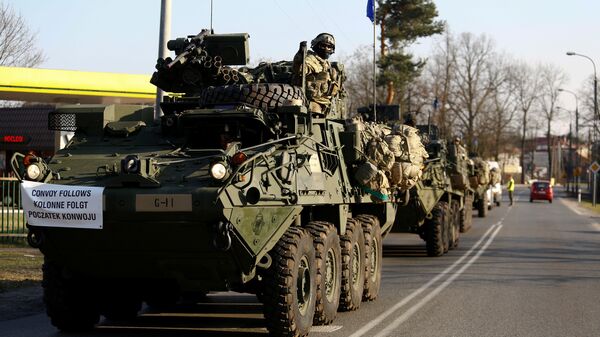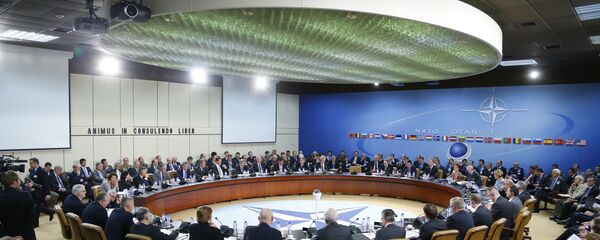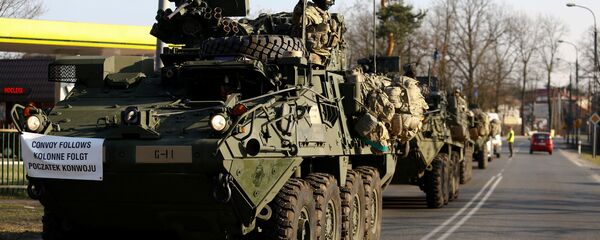WASHINGTON (Sputnik) — The US Army's deployment of a division in Poland is purely defensive and anyone who suggests otherwise is wrong, Pentagon spokesperson Dana White told reporters on Thursday.
"Our presence there is defensive. We're very transparent about our presence there," White said when asked about the deployment. "We are in those places in a defensive posture and we are very clear about that, and anyone who sees anything differently would be wrong."
The spokesman said the military equipment of the US 3rd Armored Brigade Combat Team had not yet been removed, thus creating a de-facto mechanized division near the Russian border in violation of the NATO-Russia Founding Act.
Later in the day a Department of Defense spokesman Johnny Michael told Sputnik that the United States does not plan to build up forces in Europe and does not consider rotating its troops in and out of the continent as a violation of its pact with Russia.
The Pentagon spokesman has argued that "heel-to-toe" rotations occurred every nine months as part of the US collective security commitment to its European allies "in light of Russian aggressive actions in the region."
The incoming ABCT, he said, is still in the process of rotating in. It is made up of some 3,300 personnel and about 1,600 pieces of equipment, including 85 tanks. The outgoing unit arrived in Europe on January and is "transitioning out of the theatre."
"At any given time there are approximately 3,500 rotational ABCT forces deployed for Operation Atlantic Resolve," the Pentagon spokesman said, adding the incoming unit "replaces that of the departing unit not in addition to."
Poland's Defense Minister on Thursday denied that a US Army division had been newly deployed in his country, saying NATO battalions are regularly stationed there.
The chairman of the Russian lower house of parliament's International Affairs Committee, Konstantin Kosachev, said Thursday that the United States had strengthened its military presence in the vicinity of the border because of misguided fears after Russia's Zapad-2017 drills.
Vladimir Shamanov, head of Russia's State Duma Defense Committee, warned on Thursday that Moscow could opt to strengthen its group of Iskander tactical ballistic missiles on its side of the border, including in the Kaliningrad exclave, in response to US actions in the Baltic region.
The Zapad-2017 drills were held on September 14-20 on the territory of Russia and Belarus. The United States and other western countries have repeatedly expressed concerns over the joint drills, saying that Russian troops, deployed in Belarus for the Zapad-2017 exercises, could remain in Belarus after the drills. Russian and Belarusian officials have repeatedly refuted the allegations.




